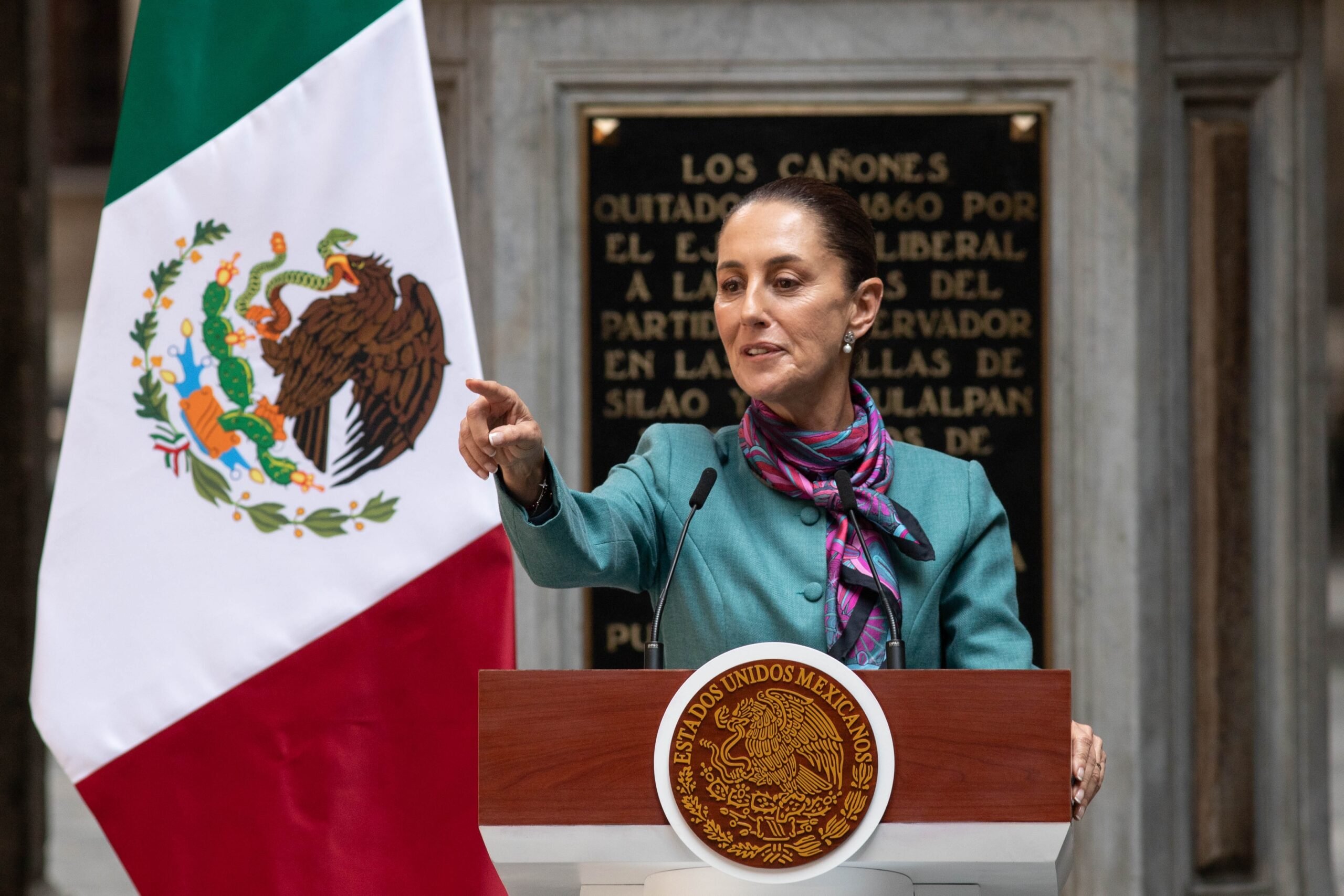Black Tea
In Lufkin, a Republican newcomer challenges
At the Texas State Forest Festival in Lufkin in late September, people wandered among tall pine trees eating funnel cake and watching local kids in the dance team competition. In the midst of this subdued revelry, James White stood out. The Republican challenger for House District 12 paced back and forth by his campaign stand, talking rapidly into a Blackberry. Periodically he would put down his phone, stroll over to festival-goers, and stick out his hand. First he won over Connie and Mark Reeves, local GOP volunteers who became politically active after President Barack Obama’s election. White is their kind of a Republican—a Tea Party candidate, eager to talk about federal overreach and failed Democratic politics, and the need for the GOP to get its house in order. The Reeves believe the president is neither a Christian nor a patriot. They’re excited to see James White’s Tea Party candidacy. “What an outstanding man,” Connie said. “He stepped out of the box, because, you know, most black people are Democratic.”
White seems determined to upend stereotypes about East Texas and the Republican Party. In deep East Texas, a black man is running on the Tea Party platform against an Anglo incumbent Democrat. White is determined to expand the Tea Party constituency beyond its Anglo base. At the festival, White approached a group of black women and told them about his time at historically black college Prairie View A&M University, his career as an infantry officer, and his move to East Texas, where he works as a coach and high school economics teacher in nearby Woodville. By the end, the women were promising their votes. “I like what he’s talking about,” one lady said. “Like he said—be independent!”
Superficially, White appears to be a walking contradiction. He’s a serious candidate who’s decided to campaign for the black vote—a vote he likely won’t get and probably doesn’t need to get elected. He’s a hard-line conservative who supports affirmative action. He’s a Tea Party man who compares the movement to the NAACP. “They were both started because the government wasn’t doing their job,” he said. The way he sees it, the NAACP defends the rights of blacks, and the Tea Party defends the rights of taxpayers. Each group accuses the other of being racist.
White doesn’t see the contradictions, and it can be difficult to figure out what angle he’s working. He’s not an evangelical conservative—there’s no moment when he was born again with conservative principles. He’s always gravitated toward the Republican Party, he said, despite growing up in a Democratic union household in Houston. “A lot of it just seemed intuitive to me,” he said.
It’s ironic that he’s courting the black community, considering that in his own life he has distanced himself from it. White grew up in inner-city Houston and went to Prairie View. Then he entered the Army infantry, where he was one of the few black officers. “It was not uncommon for me to show up in a unit and not [have] another black college graduate, let alone officer, on the post or in the unit,” he said. Now he lives in neighboring Woodville, where most of his coworkers and students are white.
White has moved comfortably in white, conservative cultures, and it’s clear he thinks the time is ripe for more African Americans in the Republican Party. He’s chosen a hell of a place to prove the point. East Texas is the part of the state that looks most like the Deep South. The only governor from Lufkin, Allan Shivers, held office from 1949 to 1957—and opposed the Supreme Court decision that forced Texas to integrate its schools. Jasper County is next door. It became a household word for a while after the horrific murder of African-American James Byrd Jr., which prompted state lawmakers to pass hate-crimes legislation. When White considered running, almost a year ago, he heard that people were worried. “There were some concerns that got back to me indirectly,” he said, that he “won’t get many black votes and he’s going to scare away white votes.” While there are a few visible black Republican elected officials—Railroad Commissioner Michael Williams and Supreme Court Chief Justice Wallace Jefferson—there are no black or Hispanic Republicans in the Texas House or Senate. White thinks he can break that barrier.
Beating longtime state Rep. Jim McReynolds won’t be easy despite the fact that this is a conservative stronghold. While the race is getting more attention, there are more obstacles than latent racism for the challenger. White is “an outsider” from Houston, and moved to the area in 2005. McReynolds has called himself “Mr. East Texas” and has held the seat for 14 years. He wins with big margins; in 2006 he won with 56 percent, and in 2008, he saw 57 percent. Still, it’s a tough year to be an incumbent Democrat, and the district already goes heavily Republican in statewide races.
McReynolds is almost ubiquitous in the town. At Lufkin’s First Baptist Church, he arrives to thank pastel-clad hospital volunteers gathered for a day of recognition. McReynolds sounds like East Texas and peppers his sentences with quaint vernacular like “precious” and “girl.” Under dim fluorescent lights, the crowd of mostly elderly ladies began bragging about their connections to the representative: “He knows my husband.” “He worked with my cousin.” When he takes the podium, he knows how to work the crowd. “You don’t know—you may think you know, but you don’t know till someone like me tells you—how vitally, vitally important you are,” he said.
McReynolds is part of the self-proclaimed “moderate middle.” While he offers sympathy to Tea Party activists, he’s firm about places where cuts can’t be made. For a quiet man, he can get pretty energized. “We ain’t balancing the budget on the backs of children, we ain’t balancing the budget on the backs of people in nursing homes or the mentally retarded. You want me to get fired up?,” he asked. “I can get fired up!”
White has taken a more hard-line approach. He criticizes health care reform and said there’s plenty of room to cut spending in Austin. He attracts Tea Party activists and typical Republicans. But White has also focused on black voters. It’s an unusual choice. As a group, blacks have benefited more than others from progressive social programs, and have voted more than 90 percent Democratic in every presidential election since 1988.
White isn’t exactly choosing the logical path here—and he knows it. His own polling shows 2,200 black votes as “persuadable”—not a high percentage given that about 60,000 votes were cast here in the 2006 midterm. “I could go out and pretty much barnstorm Tea Party Republican conservatives, and I could win this race in this environment and not need one iota of the black vote,” White said.
Still, he’s out speaking in black churches and block-walking in Lufkin’s black neighborhoods. When he defends his strategy, his reasons differ. At one point, he argued it’s important as a black candidate to show black support. “Certain white voters will watch your behavior with black voters, and that will help them make their decision,” he said. In White’s logic, whites will feel like he’s not a wingnut if he can appeal to some in the historically Democratic black community.
When it comes down to it, White is reaching out to black voters because they are important to him. “I don’t want to win this race by choosing my voters,” he said. “I want to win this race by having each and every voter evaluate me as a man, as a Texan and on the issues that I’m standing on.” He knows it would be more pragmatic to ride the Tea Party wave. “Should I do what Republicans usually do?” he asked. “Just write off the black vote?”
He said that would be a mistake. “Republicans fuck it up all the time,” he said, by denying racial dynamics. His own consultants have told him he’s over-thinking race in his election, but White takes a historical perspective. “The Republican Party has benefited from being politically hostile toward black interests,” he said, “not necessarily black people, but black interests.”
White said his free-market approach is in the interest of American blacks. “It’s the free-market model that has been responsible for providing the most good for the most people,” he said. He points to the high poverty rates “after 30 or 40 years of these Democratic [social welfare] policies being in place.” While he supports affirmative action, he’s adamant that blacks, like everyone else, benefit when they pay lower taxes and rely less on the government. “If you look at black achievement during the course of the history of this nation,” he said, “whenever the black person has had the most control over their achievement, that has always been advantageous.”
In some ways, this faith in the power of individualism is what led White to run, despite concerns as to whether a black Republican could win in the district. “There’s a black kid sitting in my classroom,” he said, “and I’m telling him day after day, you work hard, you get an education, you do your best. Yeah, some people are going to discriminate against you, but you do what you’re supposed to do in this classroom, and you go to college… and the American dream will work for you.”
Arguably, McReynolds has been a more obvious champion of the East Texas black community. Social welfare programs disproportionately benefit disadvantaged communities—that’s the idea—and McReynolds has created or supported those kinds of programs in his district. The representative points to “back-to-work” money—a $2,000 stipend for employers hiring unemployed workers—and skills development programs. He helped establish the Office of Rural Community Affairs, which, he says, “gives grants to our part of the world, and those grants translate into jobs.”
His efforts highlight a central difference between the candidates: White believes jobs will come from less government involvement, while McReynolds points to the work he’s done in the House to create jobs. “I know so many of the black constituents here—I don’t think they see my color,” McReynolds said. “We’re friends.”
According to Robert Shankle, a black City Council member in Lufkin, McReynolds is almost universally well liked among black voters. “They’re not just going to vote Republican ‘cause [White]’s black,” Shankle said. “It’s mainly what he stands for.” Shankle isn’t worried about McReynolds’ race, but he hopes the competition will generate more participation among Lufkin’s African-Americans. “I speak for our community. We have got lax and didn’t participate so much in the voting,” he said. For Shankle, White’s efforts have prompted Democrats to work harder.
McReynolds, who says he’s “cautiously optimistic,” probably has reason to be at least a little concerned. All around him, districts once held by Democrats are held by Republicans—and not just in name. In neighboring Nacogdoches, Rep. Wayne Christian leads the conservative caucus and chaired the Republican Party platform-writing committee. A little north, in Tyler, state Rep. Leo Berman has postulated a run against Republican Speaker Joe Straus—because he’s not conservative enough. And in Longview, state Rep. Tommy Merritt, a Republican moderate, just lost his seat to the upstart Tea Party candidate David Simpson.
Everyone acknowledges, though, that White’s fighting hard. White is convinced that should he fail, it won’t have anything to do with racism. “Of course there’s bigotry everywhere,” he said, “and the polling indicates that. But it’s not gonna be an excuse for why I’d lose this race. I will lose this race because I didn’t get to enough people and share with them that I have a vision.”


